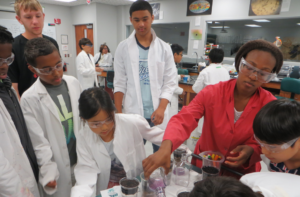Today’s blog is contributed by guest blogger Caitlin Cavanaugh, Client Support Consultant with Promega North America.
 Recently, I began a new role as a client support consultant at Promega. In this role, I’m responsible for all technical and sales support for the Promega portfolio in the New Jersey and Philidelphia area.
Recently, I began a new role as a client support consultant at Promega. In this role, I’m responsible for all technical and sales support for the Promega portfolio in the New Jersey and Philidelphia area.
Before coming to Promega, I worked in a lab at a start-up company right out of college, then made my way into sales, where I worked for a leading life-science instrumentation company for thirteen years.
Working in the life science industry for years, I knew that Promega was always looking a step ahead to promote better science and was eager to be a part of that. Here’s why I decided to make the switch to Promega: Continue reading “Why I Made the Switch: The Journey of Finding More than Just a Job”
 This motivational quote has echoed throughout my life from childhood. It has inspired me to be fearless in dreaming, to be ambitious and to reach for those goals without fearing failure. So, naturally at the ripe age of 10, my goal was to become a scientist and discover a cure to both AIDS and cancer with a secondary plan of becoming this nation’s first female President. However, as I grew older, I realized my genuine interest and excitement for science and that I enjoyed not only learning about various scientific concepts but also sharing this information with others. Therefore, I completed a Bachelor’s of Science degree with a major in Molecular Biology and minor in Chemistry and decided to continue my studies as a graduate student at UW-Madison in the Cancer Biology graduate program. My goal was to graduate and aid in disseminating scientific knowledge.
This motivational quote has echoed throughout my life from childhood. It has inspired me to be fearless in dreaming, to be ambitious and to reach for those goals without fearing failure. So, naturally at the ripe age of 10, my goal was to become a scientist and discover a cure to both AIDS and cancer with a secondary plan of becoming this nation’s first female President. However, as I grew older, I realized my genuine interest and excitement for science and that I enjoyed not only learning about various scientific concepts but also sharing this information with others. Therefore, I completed a Bachelor’s of Science degree with a major in Molecular Biology and minor in Chemistry and decided to continue my studies as a graduate student at UW-Madison in the Cancer Biology graduate program. My goal was to graduate and aid in disseminating scientific knowledge.